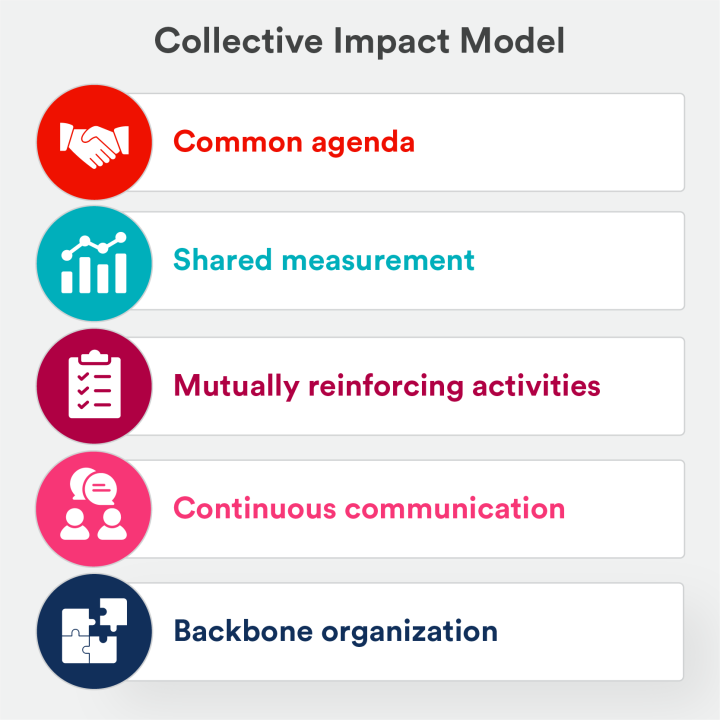Support EVAWG coalition building

Support EVAWG coalition building
Case Studies
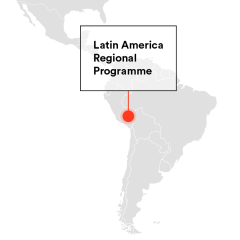
In 2020, Spotlight Initiative’s Latin America Regional Programme provided funding to support a Latin American coalition of WROs, feminist organisations and civil society organisations led by the Centre for Justice and International Law in Honduras. This coalition was advocating for the passage of a new protocol called “La Esperanza Protocol”, one of the first of its type, which aims to improve the investigation of and response to serious threats and attacks against human rights defenders.
A coalition of over 20 CSOs, women's and feminist organisations, spearheaded by the Center for Justice and International Law (CEJIL), worked towards developing this protocol. It took 5 years to develop and publish and is now hailed as the international standard for the investigation of and response to threats and attacks against human rights defenders. Spotlight Initiative provided funds to support this coalition to finalise the protocol and ensure it included a focus on the security needs of women human rights defenders. This is an essential focus because women human rights defenders, whose work is vital to strengthening democracy, face heightened risks of VAWG through their work. Contributing funds for the development and completion of protocols like the Esperanza Protocol can have long-ranging impact since it is referenced and used globally and sets an international standard for investigating and responding to threats against human rights defenders. These protocols can also be used to hold governments to account in relation to the protection of women human rights defenders.
The Esperanza Protocol was developed in honour of the memory of Honduran feminist and environmentalist Berta Cáceres, who was murdered in 2016. Prior to her murder she had been threatened over 30 times. This was not an isolated incident. Over 75% of women human rights defenders who are murdered receive repeated threats or security incidents prior to these fatal attacks. However, security forces often minimise or dismiss these instances when they arise. The Esperanza Protocol seeks to address this culture of impunity and better protect women human rights activists.


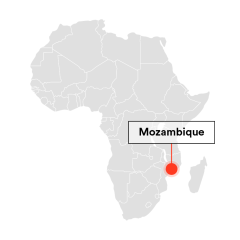
in Mozambique, Spotlight Initiative provided support to local organisations to improve community-based coalition and movement building. This support resulted in over 25 local civil society organisations and community-based organisations exchanging their experiences on best practices and challenges on sexual and reproductive health and rights, as well as the prevention of sexual and gender-based violence and child marriage. District platforms were created, in alignment with the country’s policy of decentralisation, to promote the human rights of women and girls. These platforms led to 285 people being trained, and to the development of 18 community women’s and girls’ associations in four key districts.


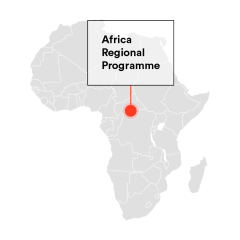
In 2019, Spotlight Initiative’s Africa Regional programme conducted a mapping of 779 civil society organisations and community-based organisations, including 45 networks and coalitions, 11 groups of people with disabilities, 7 groups of people affected by HIV/Aids, one Albino group and 13 LGBTQI+ organisations. This database helped capture themes, existing strengths, gaps and capacities of these organisations. Spotlight Initiative was then able to provide targeted support across these organisations.
Following this, Spotlight Initiative established CSO Secretariats across the five focus countries. These were coalitions of the mapped organisations who came together to conduct advocacy, report and respond to VAWG, and promote sexual and reproductive health rights within their communities. In Liberia, this coalition jointly advocated for zero tolerance of all forms of violence perpetrated against women and girls. They have also jointly established stronger referral systems between the CSO Secretariats and VAWG response services.


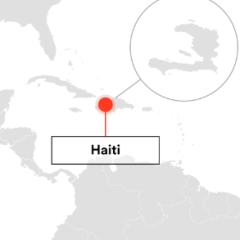
In 2019, the United Nations’ Women's Peace and Humanitarian Fund (WPHF) and Spotlight Initiative established a strategic partnership to channel funding to civil society organizations (CSOs) working to end violence against women and girls (VAWG) in conflict and crisis situations. As part of this effort, WPHF and Spotlight Initiative also collaborated to strengthen networking and peer learning among CSO partners from across the world through the Global Learning Hub (L-HUB) online events.
WPHF and Spotlight Initiative’s partnership led to new support to Association des Femmes de Madeline (AFM) in Haiti. With this support, AFM developed a range of strategies to engage grassroots women's groups in coalition building, with the aims of promoting joint advocacy to eliminate VAWG and elevating grassroots women’s needs and recommendations.
AFM’s experience illuminates multiple good practices in strengthening coordination and embedding participatory approaches to end VAWG. AFM provided four community-based organizations (CBOs) with institutional support and activity funding in four municipalities in Madeline, northern Haiti. AFM trained the CBOs on the importance of working within a coalition, highlighting the huge potential for collective political influence, and how coalitions can help prevention and responses to GBV.
AFM adopted a participatory approach. They organized meetings in each targeted municipality with GBV support actors, community and organizational leaders, and local authorities for the establishment of local community mechanisms for referral and protection against GBV. In addition, through the establishment of autonomous complaints and feedback mechanisms, AFM ensured that people’s voices were heard, and their priorities understood, considered, and used to guide strategies combatting GBV in Madeline.


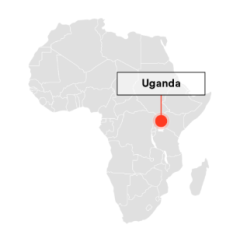
In 2019, the United Nations’ Women's Peace and Humanitarian Fund (WPHF) and Spotlight Initiative established a strategic partnership to channel funding to civil society organizations (CSOs) working to end violence against women and girls (VAWG) in conflict and crisis situations. WPHF and Spotlight Initiative also collaborated to strengthen networking and peer learning among CSO partners from across the world through the Global Learning Hub (L-HUB) online events.
As part of WPHF and Spotlight Initiative’s partnership, support was provided to Uganda Women’s Network (UWONET). As a result of this support, in 2021, UWONET fostered coalitions through its district network model. The organization has a presence in each of Uganda’s 38 districts, allowing it to connect women at the grassroots level with key stakeholders, including police actors, local authorities, and survivors’ support units, youth networks and other community-based organizations (CBOs). UWONET also operates a shelter for GBV survivors.
Through mapping and profiling the CBOs in each territory, UWONET built strong partnerships and facilitated grassroots women’s involvement in advocacy campaigns and policy changes. UWONET linked up local women with its district offices. These offices serve as women’s primary contact to elevate local issues. They help ensure that women’s groups are involved in national events and key platforms such as village development committees so they can influence decisions that affect their communities.
Support from WPHF and Spotlight Initiative meant that UWONET had the resources to help grassroots women’s groups register and legalize their activities, enabling them to benefit from government programs, resources and opportunities. UWONET trained women’s groups in evidence-based advocacy and documentation skills and provided them with posters and t-shirts to support their community engagement. By resourcing and supporting these women’s groups, including their young women members, the organizations gained new capacities to raise their voices at higher levels and access national consultations.
UWONET established resource centers in each district, where women could learn about their rights, gain advocacy and leadership skills, and find information on how to access help when needed. These centers also provided safe spaces for women to discuss and engage on local and national issues. Through this support, UWONET hosted a range of events, including “Women’s week” events. Here they invited women’s groups to set their own agendas, identify priorities and develop policy briefs compiling the key issues on women’s rights and local concerns. UWONET’s events aim to bring women together from across different sectors to celebrate sisterhood, as well as build and review policies affecting women and girls at the grassroots level.
Alongside this, UWONET published press statements in local newspapers on current issues. UWONET’s use of media was an important tool to elevate local voices and reach a broader audience.



